The Fiddler
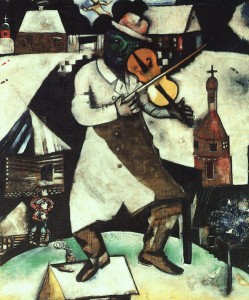 Last night I went to see my friend’s daughter play Golda in a high school production of ‘Fiddler on the Roof.’ This play was first performed the year I was born. And, of course, I have seen many incarnations of it since. I have always loved this piece but last night there were a few things that struck me about the entire experience.
Last night I went to see my friend’s daughter play Golda in a high school production of ‘Fiddler on the Roof.’ This play was first performed the year I was born. And, of course, I have seen many incarnations of it since. I have always loved this piece but last night there were a few things that struck me about the entire experience.
The first was the energy in the lobby when I entered. The excitement, the joy, the sense of expectation. These are feelings and expressions so rarely experienced in professional theatre. It was thrilling to be within this moment just as a play was about to be shared.
But it was the play itself that really struck me. Many of us know the story. It takes place in a small village in Tsarist Russia where Jewish and non-Jewish Russians learn somehow to live with tolerance of one another until forces push them into positions from which they can’t return. Traditions are threatened, lives change, major societal changes and power struggle are in the background of people simply trying to live their lives. The Jews simply wish the world to do what it will and leave them to their peace. But the world has other plans for them. And they are forced to abandon their lives as they have known it for centuries and move from their home into the great unknown of a changing world.
This is likely not the way I would have explained the story when I first saw it. I would have seen a piece about Tevye and his 5 daughters, the shifting relationships with the three eldest as they express and follow love for their future husbands, and Tevye’s faith and love of a god who he personally knows and loves in his own, humorous way. I never would have felt so strongly, as I did last night, that this story of Fiddler on the Roof is a story about humanity, not simply Jewish identity and tradition. And that its narrative is continual and current. Expressed in many languages and in many cultural/religious scenarios even as I write this.
When I thought about a particular scene I am directing called ‘Chechnya’ from ‘A Stubborn Woman: a theatrical memorandum on Anna Politkovskaya,’ which we are about to present, I was struck by the similarities, although of course presented in a musical-theatre fashion, to what ‘Chechnya’ also speaks to. The ‘clearing of the Russian woods’ of the ‘blacks’ (as the Russians referred to the Caucasian Muslim Chechens). A continual movement of people from land mass to land mass, or a destruction of them entirely. There is the importance of dehumanization in order to do this. Either dehumanization of ‘the other’ or dehumanization of one’s self as is demonstrated by the Constable’s insistence to Tevye that he has ‘no choice.’ Which led my thoughts to the Syrian military pressured to shoot into crowds of unarmed protesters or suffer death themselves at the hands of their superiors.
Although life is not a musical, Fiddler on the Roof became for me a powerful statement of how significant theatre can be in the depiction of the human evolutionary progression. Is there any people who have no suffering in their background? No moment of struggle for survival, or historic circumstance with which they have to defend their right to exist on this planet?
Tevye is, of course, followed by his Fiddler…. his ‘Jewish soul’ who can not become a separate part from his suffering. But who can withstand the test of time and cruelty of humanity. The music continues…. even as a whisper in the background of the chaos we create against one another. It continues as a memory and as a promise. To us all.
I am deeply grateful I saw this production last night. It has informed me of two things. One, that we as professional theatre artists must continue to find ways to create theatrical events which people are as thrilled to be at as parents and friends are at a high school production. And two, it confirmed for me that my presentation of ‘A Stubborn Woman: a theatrical memorandum on Anna Politkovskaya,’ must have its own ‘Fiddler’….. its line note of hope to follow us both into the darkness and lead us out of it into the light.
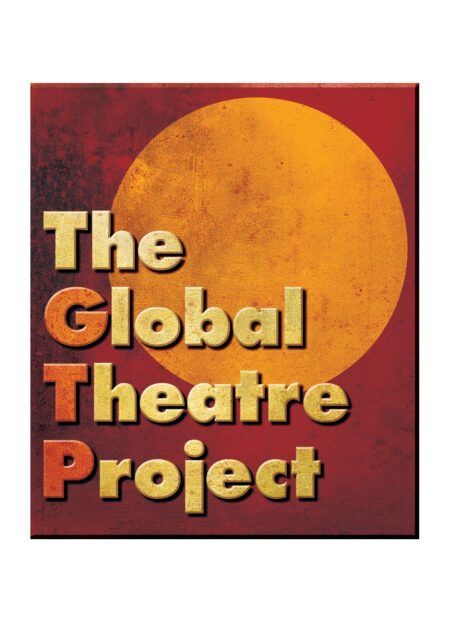
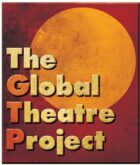
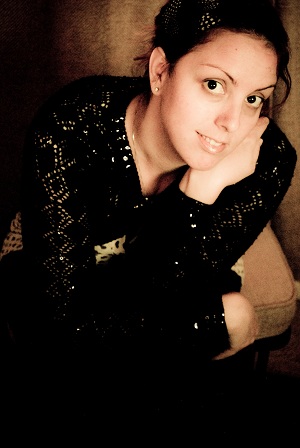
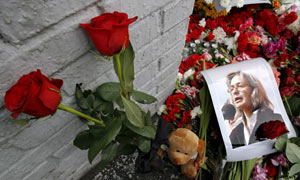

thomas kellogg
Well spoken Bari.
Clelia
Thank you for sharing your thoughts which are, as always, very poignant and special. Viva il teatro!
Alies'
Dear Bari,
It would be great for you to realize, that the part of Russian empire that you talk about is now called Belarus. The only Russians that were their – was Russian occupying army soldiers and officers. The common villagers were Belarusian, Jewish, Polish. Mark Chagall was born and grew up in Vitsebsk, Belarus (at that time Russian Empire). Belarusian and Lithuanian lands – lands formely known as Grand Duchy of Lithuania – were traditionally very friendly to Jewish population. Most of the cities and small towns (schtettles) had 50% or more of Jewsih population, which called themselves litvaks. The litvak culture has enormous contribution to World Jewish culture. First parents, who brought up a child speaking Idish were Belarusian emigrants, several heads of Israel are Belarusian emigrants, the guy, who started Israeli armed forces is Belarusian emmigrant. And there is much more. In view of all this it may be worthwhile to appreciate the difference between Russia and Belarus and start calling homeland of Chagall Belarus.
Thank you,
Alies’
bhochwald
Alies’ thank you so much for sharing that information! The piece is not referring of course to Chagall’s homeland, we are using an image of his Fiddler for the post. But I do think what you are saying is of vital importance. Especially to me personally as my Grandmother is Belarusian and I am interested to learn about a part of the world I was told nothing about. We will certainly add ‘Belarus’ to the tags. And I hope to see you at our next event so that we can continue the conversation in person!
With regards,
Bari
Alies'
Thank you, Bari.
I’ll do my best to be there.
Regards,
Alies’